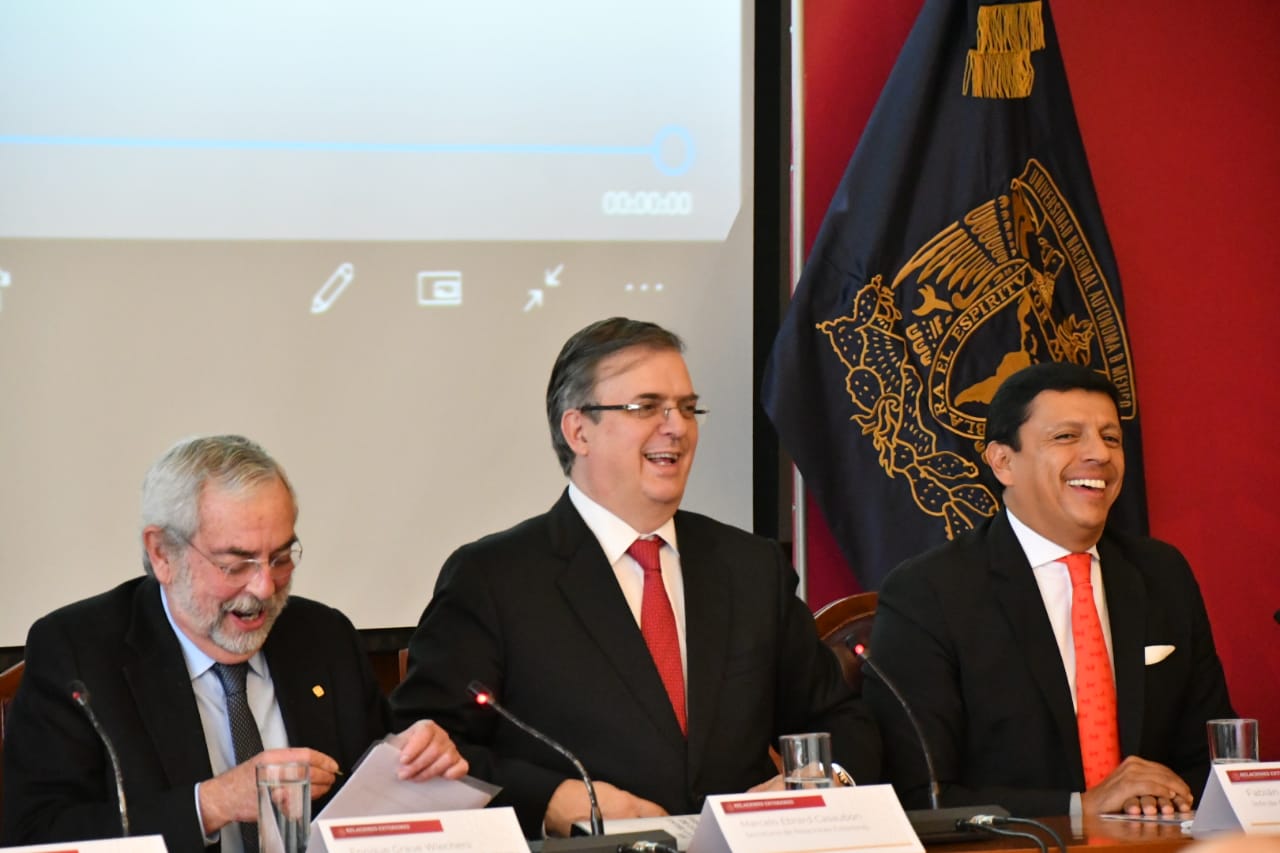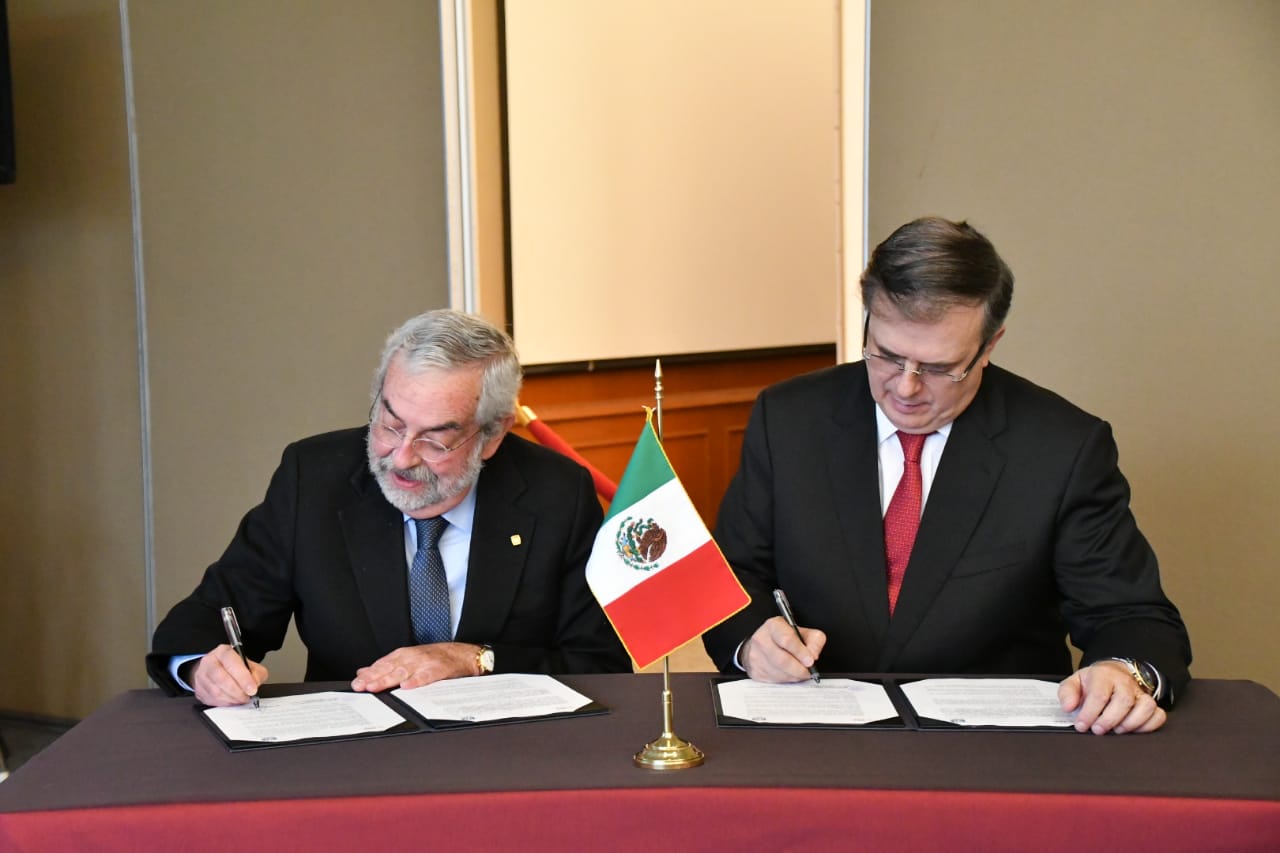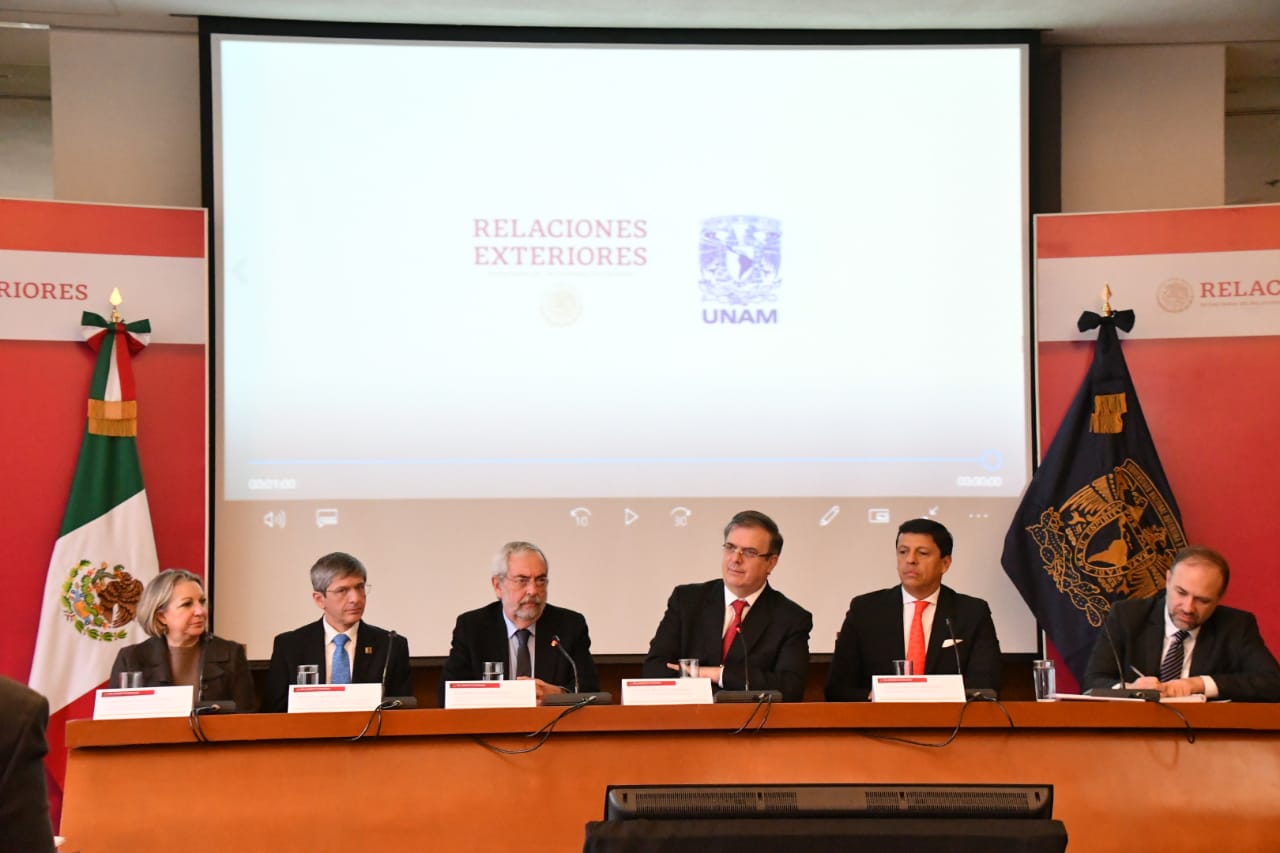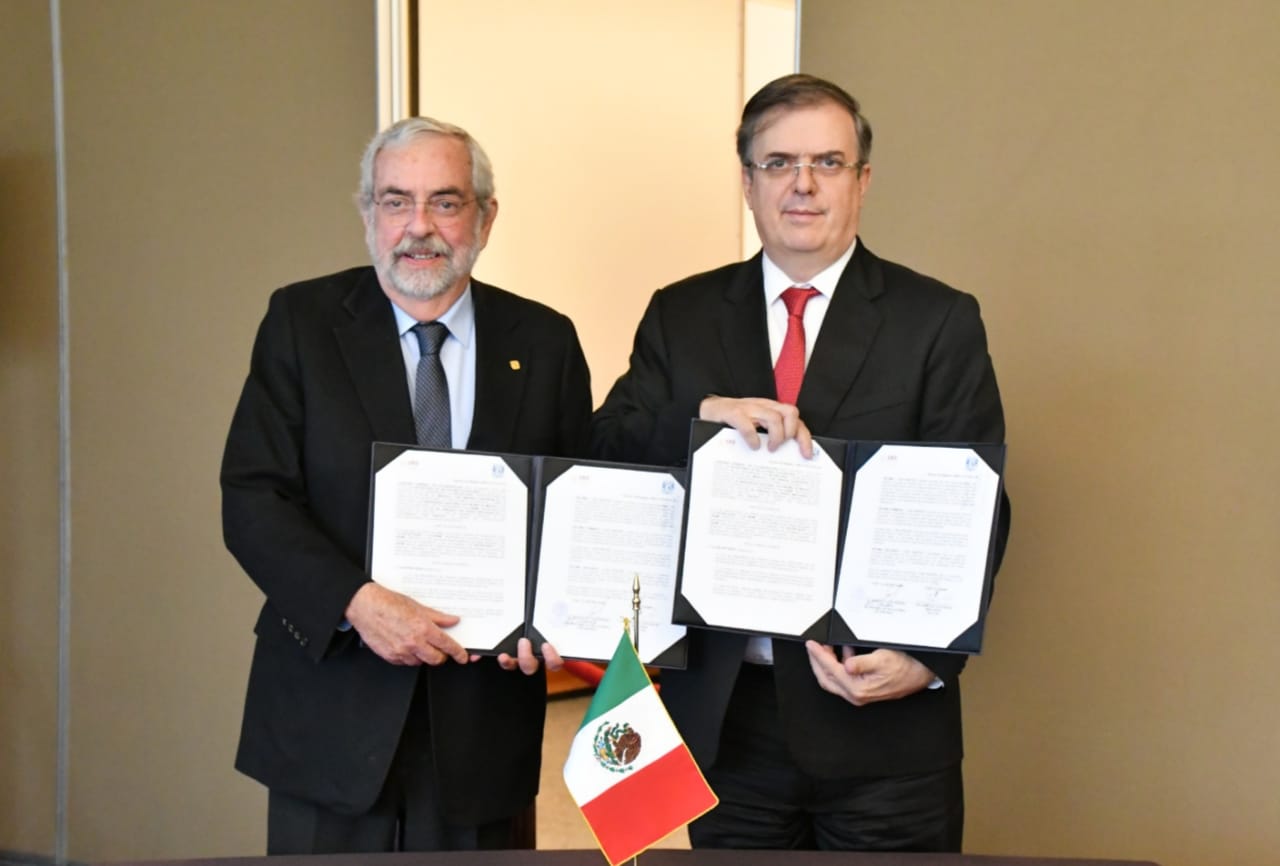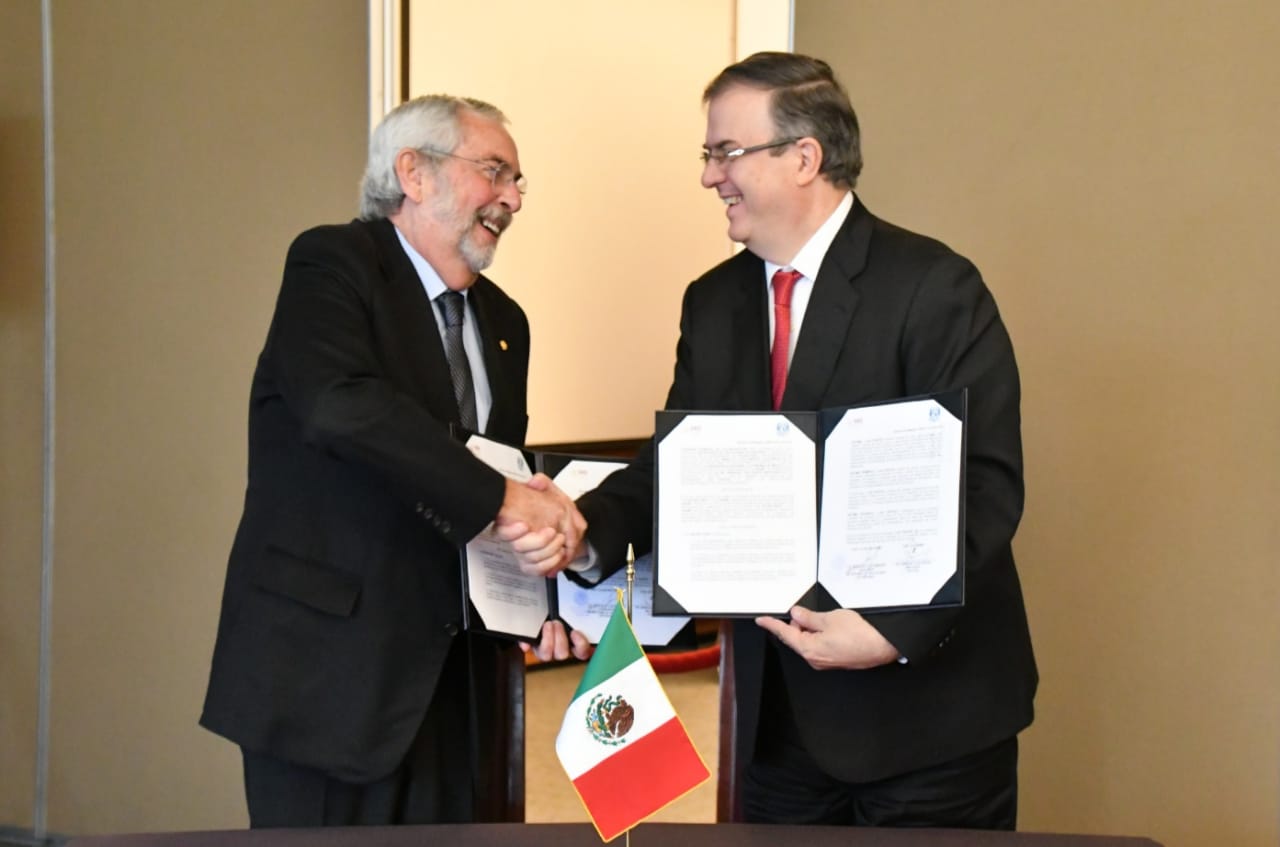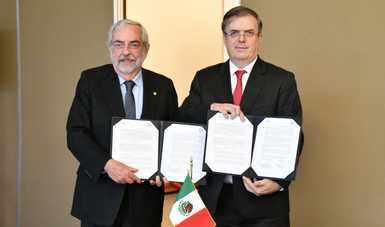- The agreement is an opportunity to bring new technologies into digitalizing the Ministry's processes, to make them more effective and easier to use for the most vulnerable, said Secretary Ebrard.
- The agreement reaffirms the UNAM's commitment to international actions, said the rector, Enrique Graue.
Foreign Secretary Marcelo Ebrard and UNAM Rector Enrique Graue signed an agreement to cooperate on scientific research and technological development projects, in addition to technical studies, graduate programs and mid-career courses, to make the new technologies partners in Mexico's diplomatic activities.
Under the agreement, free, massive access to technology designed to help protect migrants will be developed, especially with UNAM Mobile and the Programmable Logic Devices Laboratory.
Rector Graue said that this is an opportunity to reaffirm the UNAM's vocation for and commitment to international cooperation and relationships.
“The advances in knowledge, the contributions of science and technological innovation, are the fruits of shared knowledge that knows no borders and that must be consolidated. We signed this specific agreement as part of our collaboration over the past years, and there will be many more, because there is global interest in our country and we are here to serve Mexico. So, Mr. Secretary, you can count on the National University," he said.
Rector Graue stressed that the university has signed over a thousand agreements with national and international institutions. Between 2016 and 2019, it sent about 15,000 students and 16,000 academics to institutions of higher education abroad, and received almost 22,000 students from more than 40 countries, as well as 5,500 foreign professors and researchers. In addition, the UNAM has collaborated on thousands of publications with foreign researchers in recent years.
The Foreign Secretary said that the agreement is an opportunity to bring new technologies into digitalizing the Ministry's processes in order to make them more effective and easier to use for the most vulnerable.
This will make it possible for there to be alerts about updates to requirements or about fraudulent pages, and will provide quick access to the Traveler's Guide and the registration system for Mexicans abroad. By using virtual assistants (chatbots), Mexico's embassies and consulates will be able to respond more quickly to questions from Mexicans abroad.
The projects will include specialized programs and training to bring innovations to the Ministry and to move in the direction of digital diplomacy.
For the UNAM, the signing ceremony was attended by Humanities Coordinator Guadalupe Valencia García and the head of scientific research, William Lee Alardín.
For the Foreign Ministry, the ceremony was attended by the Foreign Secretary's chief of staff, Gonzalo Fabián Medina Hernández, and the Director General of Information Technology and Innovation, Ernesto Mora.

